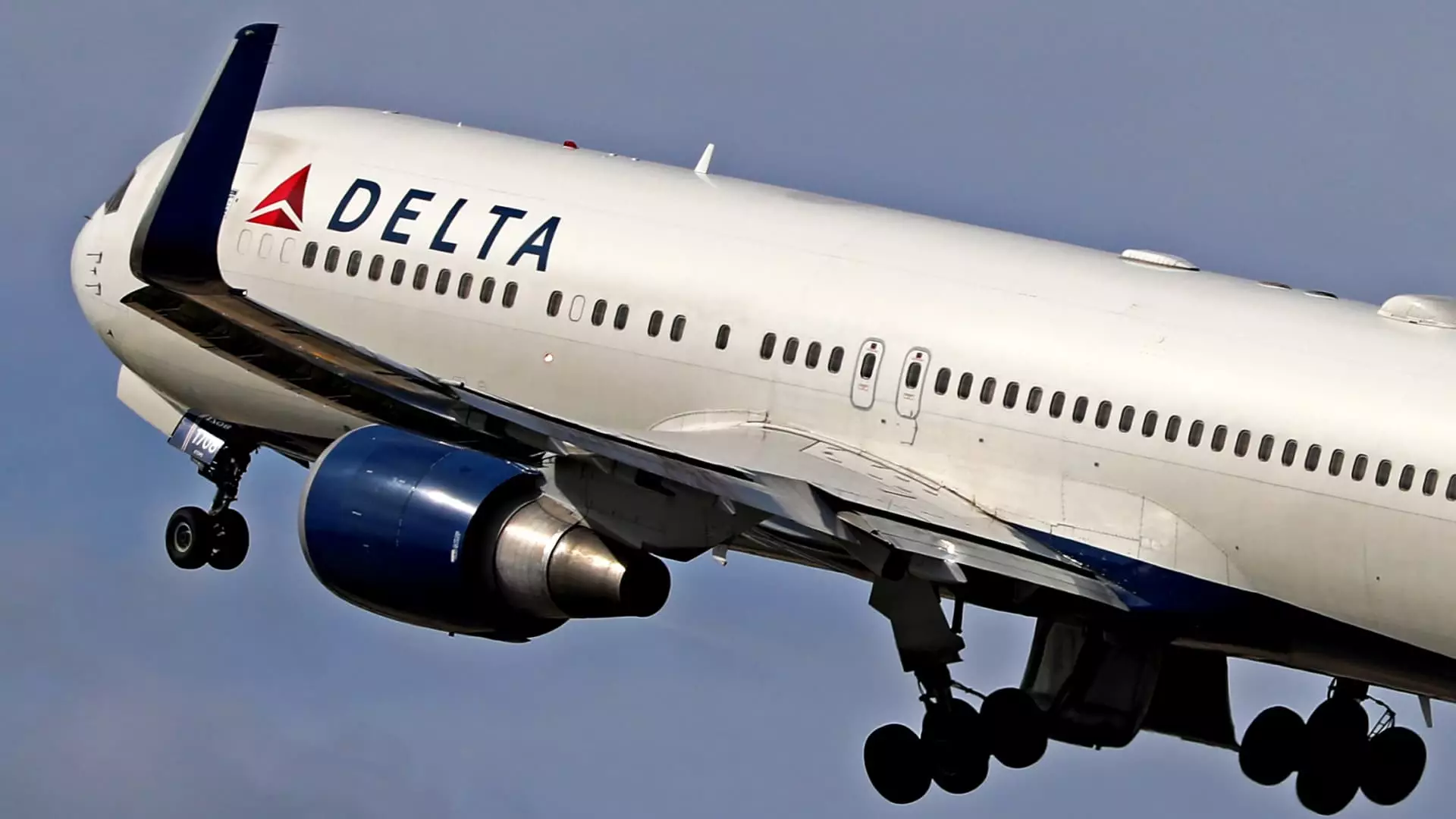Airline stocks are in a state of distress, and the implications for investors, travelers, and even the economy are daunting. As of this week, shares across major airlines have slumped as fears about diminished travel demand mount, fueled by tariff threats, spiraling consumer confidence, and a myriad of other troubling signs. The market reaction—exemplified by Delta Air Lines’ recent downgrade—reflects a broader pessimism about the airline industry’s future.
Recently, Jefferies downgraded Delta from a “buy” to a “hold,” slashing its price target nearly in half. This is still the most profitable airline in the U.S., which only highlights the seriousness of the situation. The revelation that Delta anticipates revising its 2025 forecasts downward underscores a significant risk factor that has seemingly shaken investor confidence. It is crucial to remember that while airlines tout increased revenue from premium services and credit card partnerships, the real concern lies in the economic forces that are compelling travelers to tighten their belts.
Consumer Sentiment: The Wild Card
Consumer confidence metrics serve as the canaries in the coal mine for the airline sector. Reports indicate that spending on air travel has dipped by a staggering 7.2%, contrasting sharply with the modest overall increase in credit and debit spending. It begs the question: are Americans starting to re-evaluate their travel priorities? With the cost of living rising and uncertainties looming, it’s only rational for consumers to approach trip planning with skepticism.
The latest findings from the Bank of America Institute suggest that plummeting consumer confidence, particularly influenced by factors such as inclement weather and a late Easter, may be catalyzing this decline in travel spending. However, this could also signal a deeper systemic issue, indicating that the U.S. public might not be willing to spend extravagantly on leisure travel. In a financial climate that is unforgiving, airlines must adapt quickly or risk being left behind.
The Broader Economic Picture
Moreover, as we delve deeper into this financial fiasco, it’s essential to recognize that the airline stocks’ downturn isn’t isolated. It reflects broader economic challenges that extend beyond merely inflated ticket prices. A staggering decline of 18% in the NYSE Arca Airline Index—far exceeding the S&P 500’s downturn—points to significant vulnerabilities across the sector. Investors who fail to grasp this interconnected dynamic may find themselves locked in a losing battle.
Airline executives at recent industry conferences have openly expressed concerns about softer-than-expected domestic travel demand. Such cautionary tales deserve careful consideration, especially when juxtaposed against the rising threats posed by both external market pressures and evolving consumer behaviors. Understanding these subtleties can offer insights into navigating a sector that appears to be teetering on the brink of uncertainty.
A Call for Strategic Reassessment
In light of these developments, the question investors should be asking is whether airline stocks still hold potential for recovery or if they are merely a sinking ship. A strategic reassessment may be in order. While some leaders, such as United Airlines, continue to maintain a buy-rating status, even they face substantial reductions in price targets.
The next earnings report from Delta is a pivotal moment that could either reinforce the idea of resilience amid adversity or reveal an industry vulnerable to seismic shifts in travel patterns. Only time will tell if a brighter horizon is on the way or if we are witnessing the slow decline of a once-thriving sector.


Leave a Reply